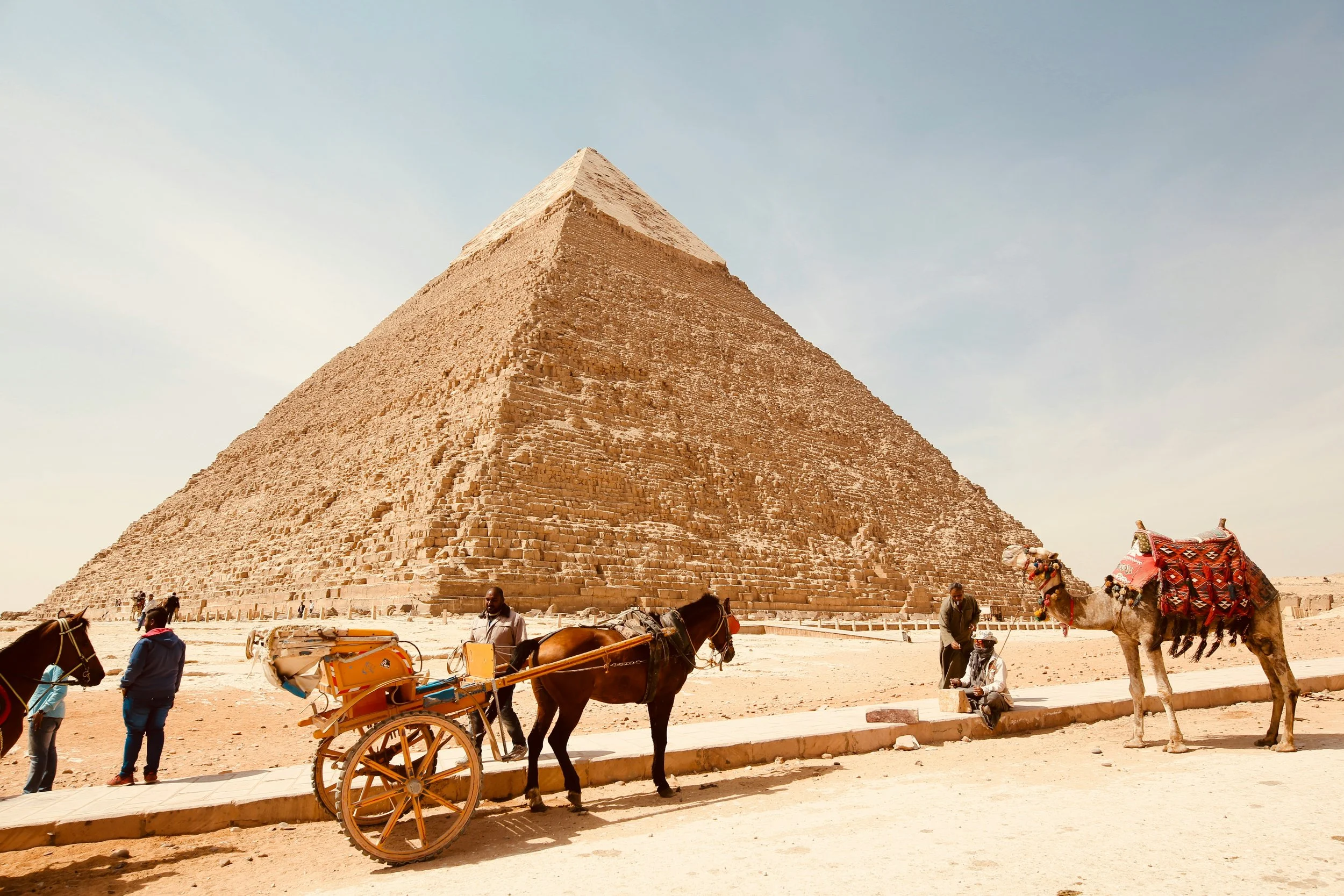Airbnb cuts ties with controversial camel rides at Egypt’s pyramids
The travel giant is leading an industry move away from supporting camel and horse rides at the iconic destination after an investigation showed animals being exploited and abused to give rides to tourists.
Airbnb will no longer promote or sell tickets for animal rides at the Great Pyramids of Giza in Egypt, following an investigation that uncovered animal suffering within the industry.
As one of the most recognized brands in the global travel industry, Airbnb’s new policy is leading a wider industry move with five other US travel companies also recently agreeing to cut ties with animal rides at the iconic destination.
This includes Black Tomato, Shore Excursions Group, ToursByLocals, Under30Experiences, and World Travel Holdings, which all now join dozens of other travel businesses that had already instated a ban previously including Abercrombie & Kent Travel Group, British Airways Holidays, and easyjet holidays.
The use of animals at Egypt’s top tourist sites has received international negative attention after a multi-year investigation by advocacy group PETA documented horses and camels being exploited and abused.
In undercover footage, workers can be seen whipping exhausted horses who are forced to haul tourists in carriages. The animals are constantly hungry, tired, and are denied veterinary care for wounds and injuries, according to investigators.
In a particularly distressing incident, an investigator found the corpses of horses and camels dumped in the trash behind the wall of the ticketed tourist area of the pyramids. The investigator found new corpses dumped there every single day, and on one visit, discovered a horse who was still alive but had been left to die in “agonizing” pain.
The investigation also covered the industry's use of camels, who are forced to give rides and be used as photo props for tourists. Camels were documented being kept in blistering heat without appropriate shade or food. PETA’s research also revealed that the same camels used in the travel industry are eventually often sold to slaughterhouses once they grow too weak to work.
A still from PETA Asia’s investigation. Credit: PETA Asia
Following the international media coverage of the investigation, the country’s tourism and agriculture departments created a new government initiative to help protect the animals used at these tourist destinations.
Launched in October 2024, the National Programme for the Care and Protection of Horses, Camels, and Pets at Archaeological Sites could mark a positive change for the industry and even help potentially phase out the use of animals as tourist props.
PETA says it’s too early to tell whether the country’s new program will be “truly impactful or merely a response to pressure,” and says the only reliable way to ensure animals don’t suffer is to keep them away from the pyramids altogether.
We Have A Favor To Ask…
Species Unite amplifies well-researched solutions to some of the most abusive animal industries operating today.
At this crucial moment, with worldwide momentum for change building, it’s vital we share these animal-free solutions with the world - and we need your help.
We’re a nonprofit, and so to keep sharing these solutions, we’re relying on you - with your support, we can continue our essential work in growing a powerful community of animal advocates this year.





